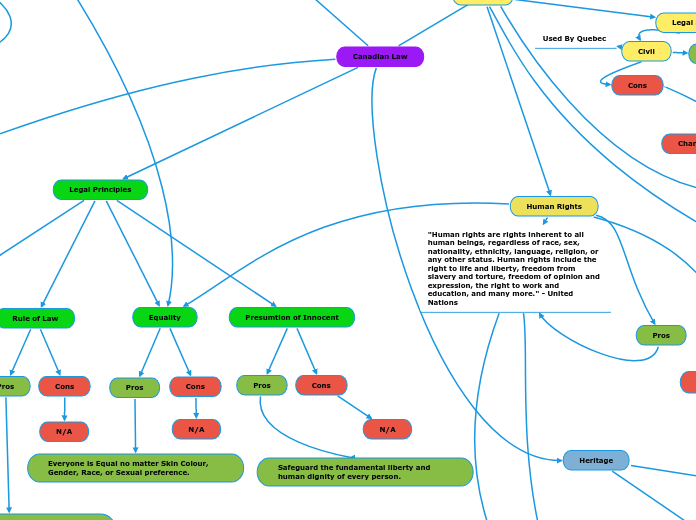da Quinlan Cinnamon mancano 2 anni
493
Canadian Law

da Quinlan Cinnamon mancano 2 anni
493

Più simili a questo
Safeguard the fundamental liberty and human dignity of every person.
Everyone is Equal no matter Skin Colour, Gender, Race, or Sexual preference.
promotes social development by strengthening the voices of individuals and communities
N/A
No Biases
Judge cannot be bias
Random Jury